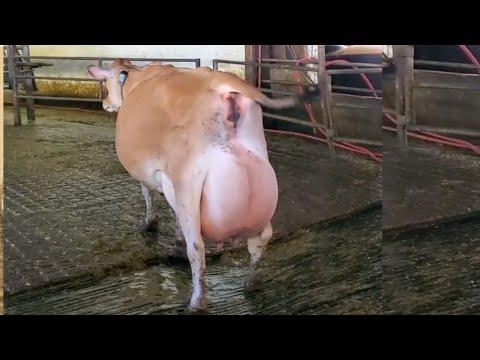COLD START
My car does not work in cold weather
The question ’my car does not work in cold weather, why' is a question that every motorist asks at least once. Diesel vehicles can hardly work in the morning if the car stays outside when the weather is cold. There can be many different reasons why vehicles do not work in cold weather or work late. This problem is a very common problem in winter and in cold weather. In this problem, which happens to almost every car driver, the car does not start immediately when the starter is pressed when the car is very cold. It works only after the car has started two, three times. If the car is running on one starter after working once or after the car has warmed up, there are some very simple reasons for this. So what are these reasons?
Why Does the Car Not Start Immediately in Cold Weather?
There are basically several reasons why vehicles don't work immediately in cold weather. These reasons include;
1. Fuel
One of the main answers to the question of why my car does not work in cold weather, is fuel. If there is moisture in the fuel tank, this moisture can freeze and cause clogging of the fuel. At the same time, in diesel fuels, in cold weather, the fuel becomes gelled, and when you first start it, it takes longer than usual to power the engine.
2. Engine oil
My car does not start in cold weather, one of the most common answers to the question of why is engine oil. When the starter is pressed in cold weather, the engine encounters the resistance of thickened engine oil. That is why the engine does not start immediately.
3. Battery
Another answer to the question of why my car does not work in cold weather, may be the battery. Car batteries produce less electric current due to the fact that the chemical reaction is slower in cold weather. That's why when you press the starter, the car does not start immediately. Also, the battery may be completely discharged or defective. If your battery has a malfunction, the following symptoms also occur:
If the engine makes a wheezing cut sound when trying to turn around
If a sound similar to a click sounds from the vehicle
4. Carburetor
My car does not work in cold weather, another answer to the question of why is the carburetor. But the carburetor problem applies only to old-model vehicles, since newly manufactured vehicles do not have a carburetor. Carburetors have small holes that can be greatly clogged and do not allow moisture to evaporate, causing ice to accumulate. These holes can become clogged in cold weather, causing the car not to work. If your car has been produced in the last 20 years, your car also does not have a carburetor. But if you have an old car, the carburetor may be the cause of your problem.
5. Ignition System
My car does not work in cold weather, another answer to the question of why may be the ignition system of your car. In order to give a clear answer to this question, you need to make sure that the ignition system of your car is working properly. For this, you should check the spark plugs, spark plug cable, ignition coil.
6. Generator
My car does not work in cold weather, another answer to the question of why is the alternator. If the alternator has a low charge, it cannot increase the battery to more than 12 volts in cold weather. That's why your car may not be working in cold weather. Replacing the alternator and charging the battery well overnight will solve this problem.
How Can I Easily Start My Car in Cold Weather?
My car does not work in cold weather, if you are wondering why, you should also be wondering what you need to do to avoid this problem. In order not to have the problem of your car not working in cold weather, you can follow the following recommendations of expert auto experts.
Park Your Car Indoors in Cold Weather
Park in the garage or in enclosed spaces so that your car is not too affected by cold weather. Thus, the battery, oil and fuel of your car will not be affected by the cold. But if you do not have the opportunity to park your car in a closed area, you can cover your car with protective covers and protect it from the cold.
Use Antifreeze
Especially in winter, antifreeze added to the engine's cooling water prevents the water from freezing, preventing your car from working in cold weather.
Use the Right Engine Oil (Engine Oil Viscosity)
The characteristics of engine oils used in vehicles vary depending on the air temperatures at which your car will be used. This property of motor oils is expressed in the term viscosity. Taking into account the viscosity of the oil when buying an engine oil greatly prevents you from encountering problems such as the fact that your car will not work in cold weather. So, what is the viscosity of engine oil?
What is the Viscosity of Engine Oil?
Engine oil viscosity is a term that refers to how easily and conveniently engine oil flows at a certain temperature. The lower the viscosity of an engine oil, the thinner the engine oil is and the more fluid it is even in cold weather. The higher the viscosity of an engine oil, the thicker the oil is, and it solidifies more in the cold, causing your car to start later in cold weather. Currently, viscosity values in engine oils have been standardized and are shown Dec XW-XX values. For example, let's say that the label of one of the two engine oils says 5W30, and the other says 5W40. W is an abbreviation of the English word winter (winter). The value after W represents the degree of viscosity of engine oil at high temperatures. The oil labeled 5W30 is thinner and more fluid than the oil labeled 5W40. Choosing low viscosity oils in winter or in cold weather will facilitate the circulation of oil in your car and prevent the oil from freezing. That is why at low temperatures it is better to choose an oil with a low viscosity grade. If the viscosity degree is high, engine oil should be preferred in summer or in areas with high temperatures. Since oils with a high viscosity are thicker, they will create a protective film layer on the engine parts, Dec reducing friction and wear between the parts.
Never Light a Fire Under Your Car
Most users see that their car is not working in cold weather and try to make the engine oil thinner by lighting a fire under their car. But with this technique, the engine oil deteriorates, and this method does not provide for starting the car. It is also a method that should never be tried because there is a fire hazard in this method.
Make Sure That Your Fuel Tank Is Half Full
Having up to half of your car's fuel tank full in cold weather is a method that greatly reduces the likelihood that your car will not work in cold weather. Starting your car in cold weather consumes forty percent more fuel than usual, and if there is not much fuel in your tank, your car may run out of fuel completely. If you fill at least half of the tank when parking your car at night in cold weather, you will not have this kind of problem.
My Car Doesn't Work In Cold Weather. What had I better do?
My car does not work in cold weather, so after learning the answers to the question of why, you may be wondering what to do. If your car is not working in cold weather and you are wondering what to do to start your car, you can follow the recommendations below.
1. Give your car a chance to work
If your car is not really running due to the cold, it may take a little longer than usual for your engine to start. To allow time for your car to warm up, first turn on its ignition and wait ten seconds. If your car has not started after waiting ten seconds, turn off the ignition again.
2. Turn off everything electric in your car.
Batteries don't like the cold. If your car is not working, the reason for this may be the strain on your battery. Turn off everything that consumes electricity in your car, such as headlights, radio, air conditioning, interior lighting. By removing October loads from the battery, sufficient power can be transmitted to the engine and your car can start.
3. Wait a Few Minutes.
If your car did not start immediately when you first started it, do not keep trying it over and over again. Wait a few minutes before you try to start your car again. This waiting time gives your starter and battery a chance to warm up. After two minutes, try turning the ignition back on. If it works, your car is overheated and running. But if it did not work, wait a little longer. Repeat the same procedure several times December 5-minute intervals.
4. Try to find out what caused the car not to work.
Are all your indicator lights on? Doesn't your indicator light turn on at all? Is your car's engine trying to turn, but having difficulty?
5. Open the hood and check the battery cables.
Open the hood and check that the wires to the battery are all properly connected.
6. Clean the connecting ends of your battery.
If your car is still not working, the connecting ends of your car's battery may be rusted. This can also be the cause of a number of other problems with your electrical system. To resolve this issue, clean the connectors on your battery. To clean the connecting ends of your battery, you can wipe the connecting ends of your battery with carbonated water when your car is not working, or you can brush the connecting ends with an old toothbrush. Make sure that you have completely cleaned the connection ends of your battery and that there is no corrosion on the connection ends before starting your car.
7. If the problem is caused by a battery or you are completely out of battery, get help from another vehicle's battery.
Try starting your car by connecting your battery to the battery of another running vehicle.
8. Get help from your service.
If your car is still not working, get help from your own service or a specialized auto service.
Should I Start My Car Every Day in Cold Weather?
in the 1980s, it was believed that vehicles should be operated frequently during the winter season and during the day in cold weather. Especially hard-working cars were operated in winter and left idle. However, this is not the case in today's automobile world. In modern cars, if you often start your car in cold weather or leave it idle, you will have wasted your fuel. But there are some good methods that you can do if you want to keep your car in good condition during the cold weather in winter.
Why Should I Not Leave My Car Idle in Cold Weather?
- Category
- Tractor & Machinery












